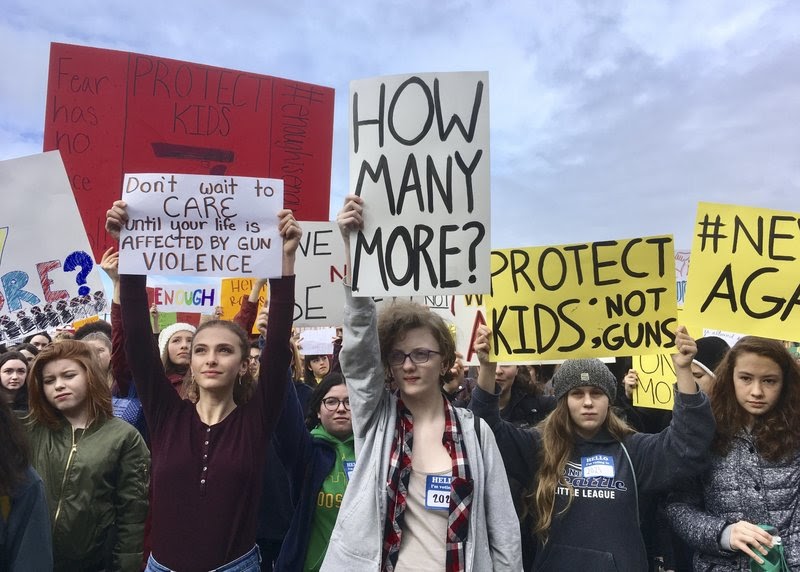Freedom, rights, liberty – all used synonymously to describe the life of individuals in their democratic society. This topic is a huge grey area in politics due to its two extremes – individual freedom and collective freedom.
Which is more important? Individual freedom or collective freedom?
While ideally, a nation should strive for both, to demand both is unrealistic. Individual freedom, at times, may contradict collective freedom. In such cases, states have to make the decision between the two in accordance with their national interests.
Personally, I strongly believe that collective freedom should be of higher priority as compared to individual freedom.
In a democracy, rather than implementing laws and promoting norms that only benefit the powerful (economically, socially and politically), they should be implemented for the ‘greater good’. The law should side with more vulnerable groups, in order to prevent any type of abuse by the elites. Benefitting the weakest in society, like minorities, should triumph and be the foundation of a country’s laws and legislation. This would work to prevent any divisions in the society from being strengthened by the system.
Recently, after the murder of George Floyd in the United States of America (USA), the Black Lives Matter Movement and protests have garnered worldwide attention and support. This translated to the discussion of racism and microaggressions in other countries, bringing to light the idea of the freedom of speech. While the USA has always had pride in its freedom of speech, this very freedom allows the normalisation of systemic racism in the country to the point of murder.
The loopholes in the laws, such as laws supporting free speech, discrimination and hate speech, is evident in the society. Freedom of speech and expression, with the lack of consequences, concretised the discrimination based on race, religion and the color of one’s skin. If specific laws were made to protect minority races in the USA, the verbal, physical and institutional abuse against the People of Colour (POCs) could be, at the very least, punishable. By choosing the individuals’ freedom, the collective freedom of the public to live in a society where they are protected against such acts is ignored.
On the other hand, a relatively more successful multicultural and multi-racial country is Singapore. With more specific laws against racism like The Sedition Act and Sections 319 to 323 of the Penal Code, Chapter 224, the people in Singapore are protected by law from discrimination and physical bullying respectively. In Singapore, freedom of speech is not a primary right, but it is qualified by public order considerations couched in terms of racial and religious harmony. In this case, Singapore rightfully chooses to limit the individuals’ freedom for the greater good of the masses.
Apart from the freedom of speech, the freedom of possession poses a huge individual versus collective freedom dilemma for lawmakers. In particular, the possession of arms (firearms and swords) has been a long debate for many countries. A country where weak gun laws have resulted in high gun-related crimes is the USA. While many other countries like Switzerland, Canada and Japan all permit the possession of guns, they also have strict gun laws and low gun-related crimes.
Singapore, on the other hand, prohibits the possession of arms. Guns are only used by on-duty officials (police and military) and in gun ranges. In general, civilians are not allowed to carry or keep any form of arms. Countries with successful gun laws have protected the masses’ freedom to domestic security. Unfortunately, due to the Second Amendment to the US Constitution, the right to keep and bear arms in the US is protected. With that said, gun laws vary across different states, though the Supreme Court has yet to consider creating stricter laws extending from the Second Amendment.
Being able to prevent the lives lost, injuries and trauma inflicted on gun violence victims should be every constitution’s objective. The right to possess or use arms should not be prioritised as empowering those who own arms would threaten the safety and security of others when this right is abused.
The reason behind this debate is due to the repercussions of allowing civilians to own arms. In the past few years, gun-related violence and terror acts like at Sandy Hook Elementary School and the Orlando gay nightclub have caused people to question who the Constitution actually protects. Should the individuals’ right to possess arms (following decades of arms possession in the US) be prioritised over the right to public safety (which is threatened)?
While I firmly stand with choosing collective freedom over individual freedom, it is also impossible for nations to jump steps by changing their laws entirely. It is with an optimistic mind that I believe new laws can be passed and enforced to protect the vulnerable of the society from physical, verbal and mental abuse. The law should be a shield for the weak and vulnerable groups in the society against the elites. Only then, will the land really be of the free.



